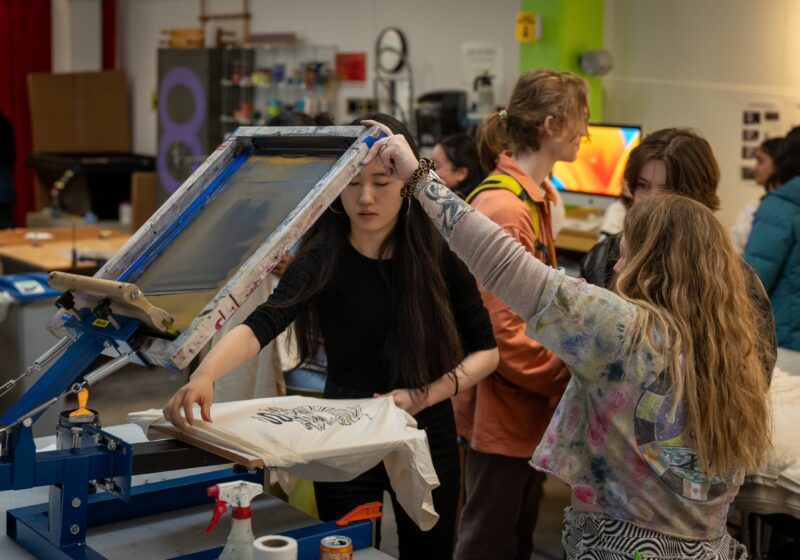Nobel laureate Orhan Pamuk, Turkey’s best-selling novelist, spoke about his latest work before a packed crowd at the Interfaith Chapel last Wednesday.
“My new novel is about remembering and about the stories, mythologies, that make up our memories,” Pamuk said early on in the discussion, referring to “The Red-Haired Woman,” an English translation of which was released in August.
Pamuk’s talk — a discussion with Sevinç Türkkan, a religion and classic professor — revolved around “The Red-Haired Woman” and how it functions as a conversation between his own memory and existing mythology.
After a brief introduction, Pamuk read a segment of his novel, which served as a source text for the evening’s discussion. The segment was an illustration of some well-diggers through the eyes of a 17-year-old boy in Istanbul in the mid-1980s.
“This is a fictionalized account of what I saw,” Pamuk said, describing his own experiences with a well-digging family 30 years ago. “But what I saw stuck with me, because what I saw was the father shouting at the boys, crushing the boys. I felt bad.”
Pamuk then spoke of his dinner with the family and of how attentive and caring the father was of his sons. Pamuk described how he was stricken by how “Freudian” the patriarch was in one setting, and how “compassionate” in another.
“I associated this story with two myths,” Pamuk said.
The first myth he detailed was the classical Islamic story of Rostam and Sohrab, in which Rostam is a king who abandons his baby, Sohrab, and eventually unknowingly kills him in battle.
Pamuk compared this to the myth of Oedipus, in which the titular character receives a prophecy that he shall kill his father, and in attempting to escape this fate, sees the prophecy to completion.
Pamuk described the myths as almost identical, one in which a father kills his son and one where a son kills his father.
He Pamuk then characterized his own novel as a combination of his story of the welldigger and the patricidal and filicidal myths that have fascinated him.
“I argue in this book that our lives are full of myths of which we are not aware,” Pamuk explained. “My books are always old stories, new stories, intertwined with my reality.”
Later, in a Q&A session with the audience, Pamuk talked about his interest in how the way life changes without our acknowledgment.
“I really liked his quote about paying attention to the details and how they form a narrative,” said Cathy Saliban, a Rochester community member.
Others were drawn in by the larger concepts that Pamuk addressed.
“I teach history, so I was very interested in the relationship between history and fiction,” said William Drumright, an associate professor of history at Monroe Community College.
At the end of the day, perhaps the most satisfied audience members were Pamuk’s fans.
“I’ve read maybe four of his books,” said Suzanne Sevenler. “And I’ll read more now. It was an honor to hear him talk.”
Orhan Pamuk is the author of acclaimed novels such as “My Name Is Red,” “The Black Book Snow,” and “The Museum of Innocence”
The event was sponsored by the University’s Humanities Center on the second floor of Rush Rhees, where students had the opportunity to meet and talk with Pamuk earlier that afternoon.
The next event in the Humanities Center’s speaker series “Memory and Forgetting” will be a talk from Laurel Thatcher, a Pulitzer-winning historian on Nov 16.





